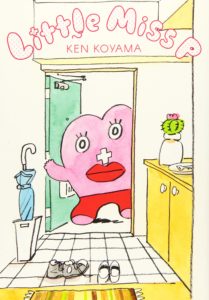
Little Miss P
Written and illustrated by Ken Koyama
Translated by Taylor Engel
Lettered by Abigail Blackman
Published by Yen Press
Little Miss P, the pink butt-shaped yokai that comes and hangs out with you. She will also beat you senseless. And she’ll protect you to the death. A cute loaf, with an easy smile and a detachable syringe hand to drain massive amounts of your blood. Ken Koyama’s world is full of Mr. Muddles and Little Miss Troubles. In Little Miss P, they are Mr. Virginity, Mr. Libido, Little Miss PMS, our titular heroine, and Menarche.
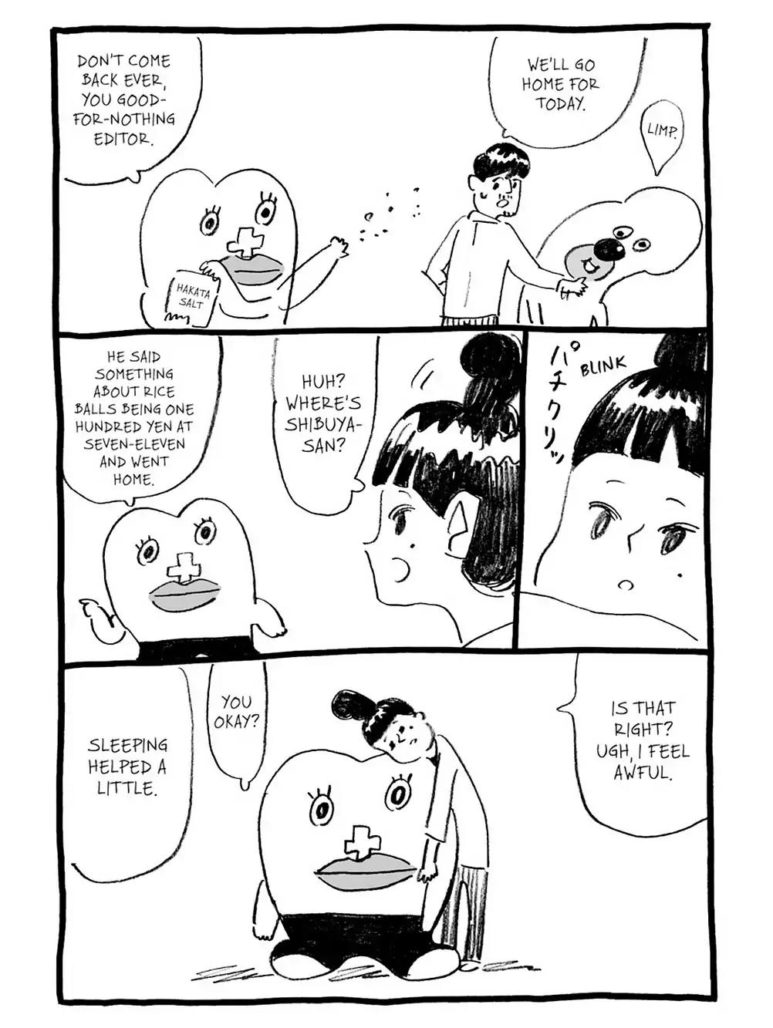
Yeah sure it’s a joke book about how rough it is to have a period, the slapstick of menstruation, but Koyama frames it in something serious. Little Miss P is about finding poetic moments in the face of absurdity. She’s a part of life. Everyone’s life: exceptional experiences and normal person stuff is given equal play, told in a series of vignettes. Scenarios across the ages that go back to an Edo period menstruation shack, the genesis of the first pad for Japanese women, self-esteem issues, trying to have a baby, that coworker who has a lighter flow and expects the same from you, crisis with menarche and the adversarial daughter of boyfriend. A week-long body swap. Little Miss P is a fairy, magic but tricksy. Kate Bush wish fulfillment and the one where the girl wishes her period away feel like fables more than stories.
Little Miss P is royalty, tough but fair. Mr. Libido is relentless, Mr. Virginity looks every bit as foolish as he makes you feel. The one omnipresent force that isn’t given a bodily representative is Mx. Shame. Maybe that’s why erogenous zone yokai an accepted norm but womanhood is taboo, but little is different in the structure of our world and Koyama’s. The elephant in the room can address the audience, but no one can force men to listen to anything.
These are stories about guilt, full of moody depression humor. Now I know what a technobreak is, thanks Ken (and Taylor Engel, for street smarts and footnotes). Adult moments and kid stuff mingle freely. You can sneak some Tokyo Tarareba Girls into your children’s theater and you can approach serious subjects with a light heart in the democracy of the funny pages. Everyone in Little Miss P is worn the hell out all the damn time, and that is the real adult content.
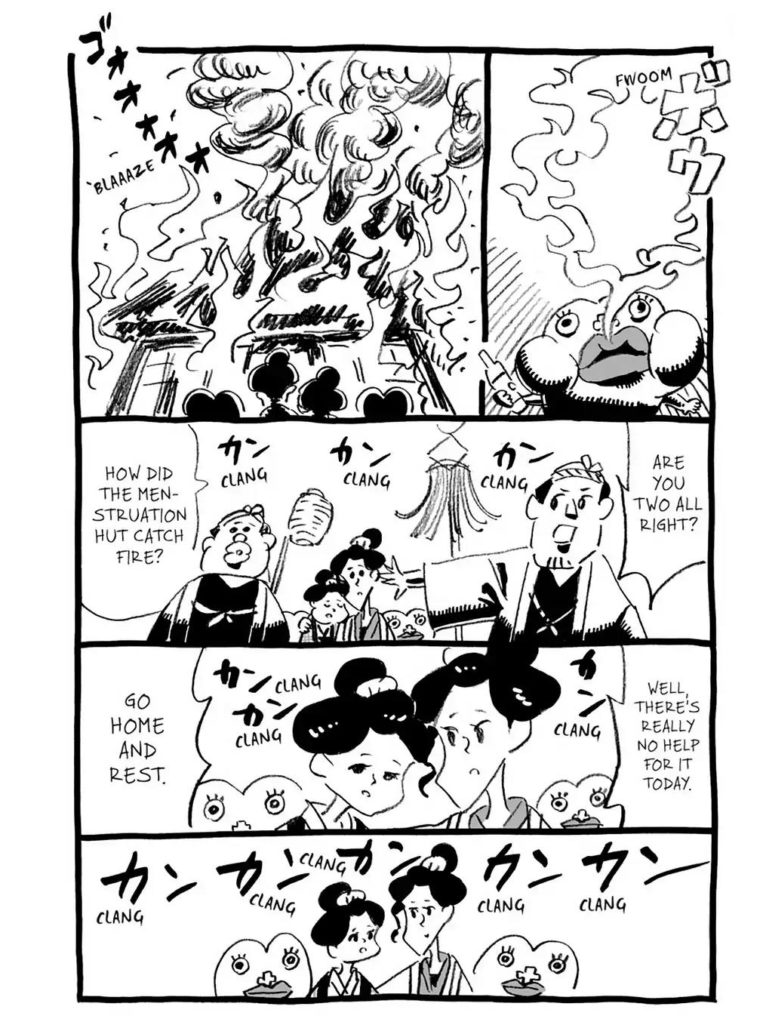
Little Miss P offers a necessarily complex relationship between women, their time of the month, and the world. Little Miss P drops down, breaking through the ceiling in a shock of drama and face in shadow. Her girl is in trouble and you don’t flex on Superman. At the same time, it sure feels like just when you need to be at 110% to get what you need in a world run by businessmen, Little Miss P pops out of your desk with a “HUP!” and bodyslams you to the floor.
That’s how it is.
What’s funny is flexible. It’s not hinged on the contrast between serious and absurd (constipation monster), but it sure knows how to exploit it (constipation monster). Little Miss P is a chuckle because Ken Koyama is a smart cookie. Little Miss P is sharp, and Koyama is very good at catching you off guard with humor and with heart.
Honestly what you’re getting out of Little Miss P is a new queen. Oh, she’s getting her tithe, but she’s also energy cleanse ejecting Mr. Libido from the apartment when he’s uninvited. She’ll lie to you about snacks for your own good. She and her girls count on each other. If Little Miss P is a superhero, her depth of protection is… nuanced. She will mercilessly pound your swollen carcass to a pulp. Yet she is the fiercely protective mama bear. A friend you should have in your circle.
Turn to Koyama’s comics for feelings silly and sweet and tender. I think you look at the book as a whole and its simplicity makes it feel like something from the humor shelf in the bookstore, rather than from the manga or comics shelves, and by that logic something dialed back for a broader audience. But spend any time in it at all and you’ll find panels as rich as the busiest of illustrators. Little Miss P reads like punk zine comics do. Yen Press have here a sister book to Silver Sprocket.
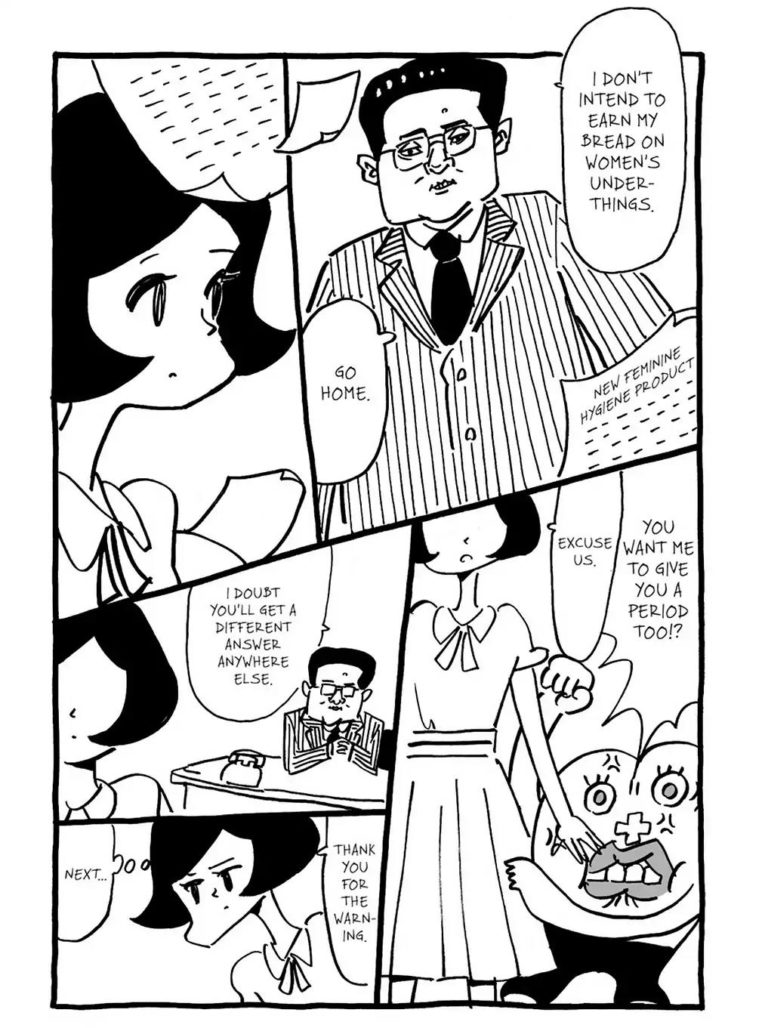
Punk zine Little Miss P has simple art because life is simple. It’s a lot of talk, people in urban environs, familiar ground that comes across in its stark presentation. A play, a moment between two on bare floorboards. Also punk is the research. The willingness to speak on taboos. Little Miss P makes a fine companion to Lucy Knisley’s meticulous and joyous graphic novel about pregnancy, Kid Gloves, which also came out this year.
The occasional insert gags that hinge on superfocus don’t remind me of Spongebob Squarepants so much as Mob Psycho 100. All the art could but doesn’t. The casual hand that pens Little Miss P is deceptive, ready to tighten up and strike when the moment calls for it. Simple style but complicated ideas makes a plethora of powerful little touches. Koyama is a slave to mood, but that just gives the style breaks for funny’s sake that much more kick.
Little Miss P begs the question, what exactly is a menstrual story? Telling all these different stories walks into how broad the scope is of what the monthly cycle means to being alive. Beyond womanhood. Historic occurences, farcical what-ifs, relatable content. There’s no menstrual story without telling the story of us. Where we’ve been, where we go in dreams, where we are now. Love, family, getting old, society, period pains, life.


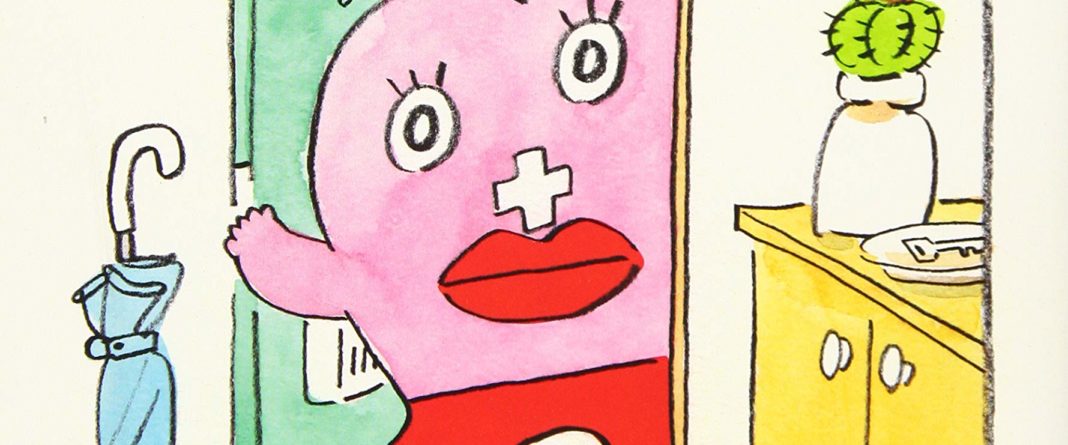
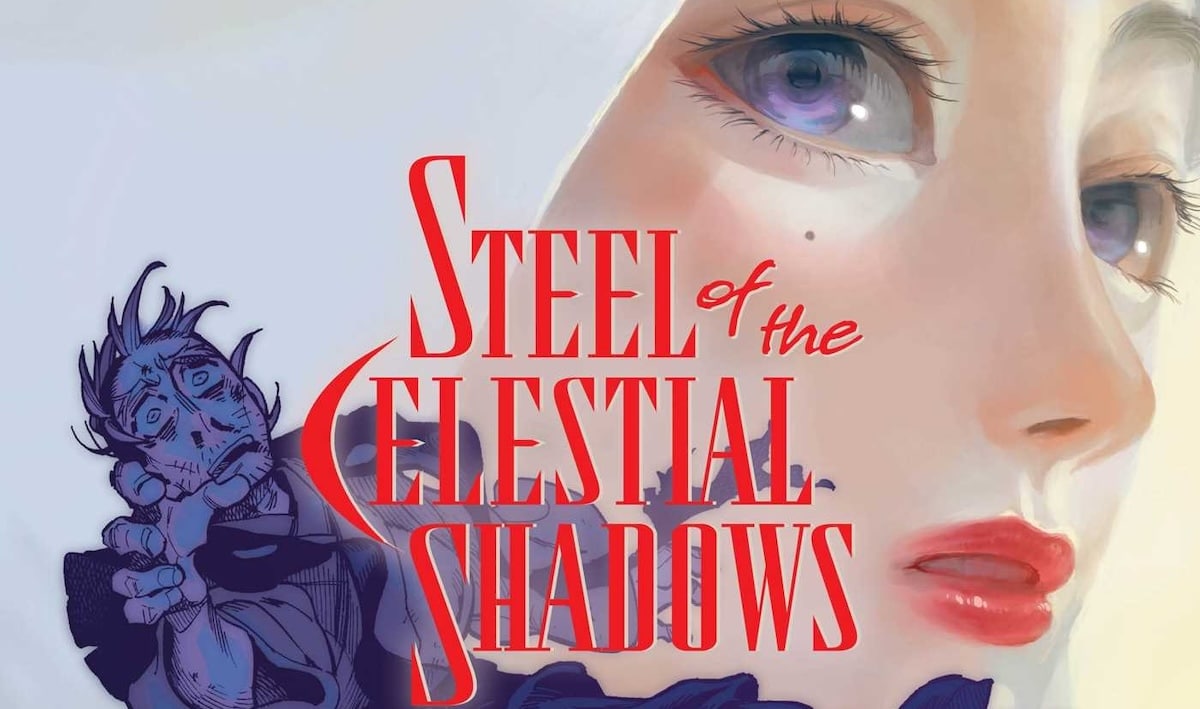
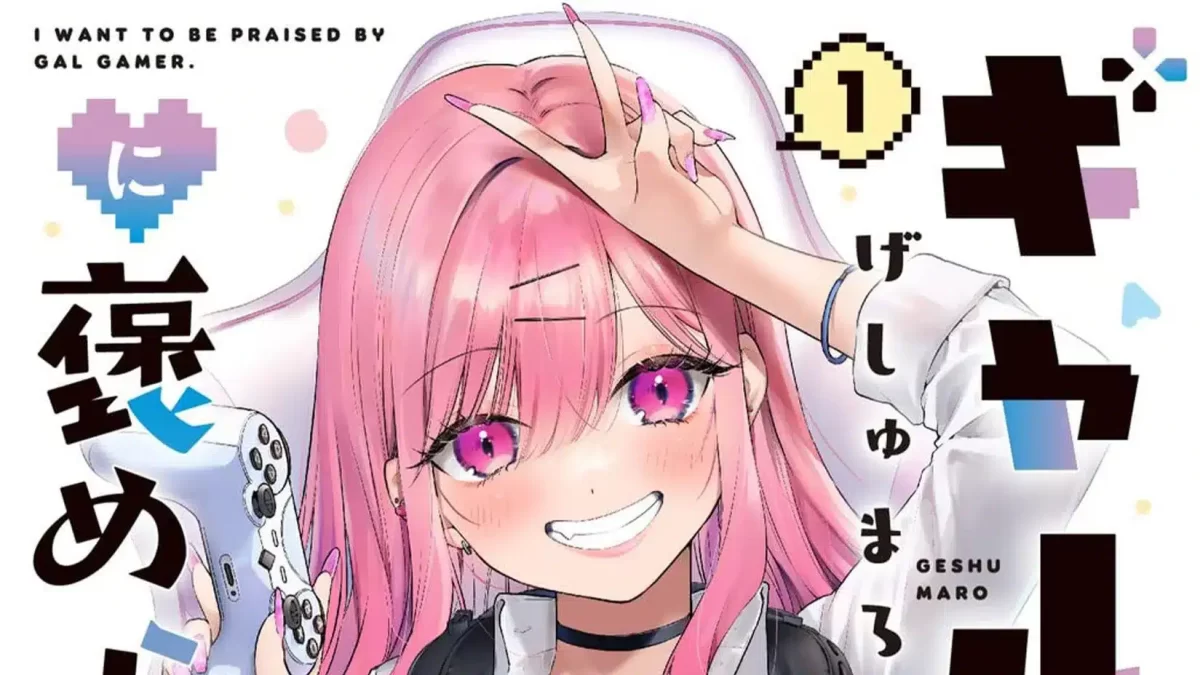
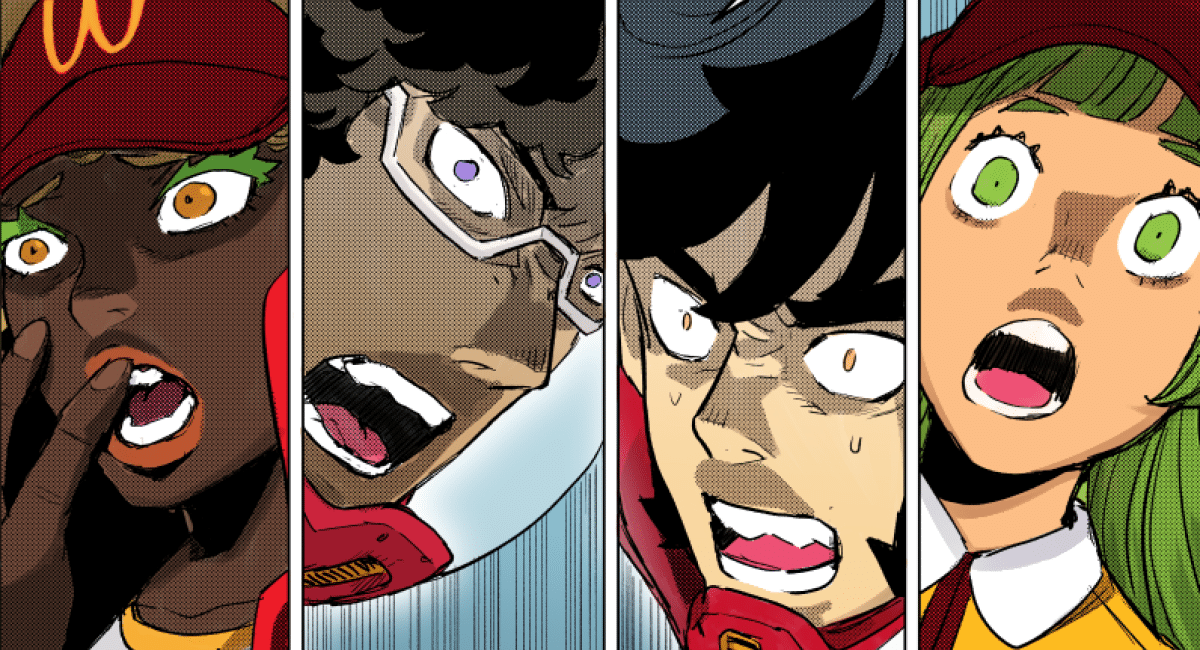



Comments are closed.